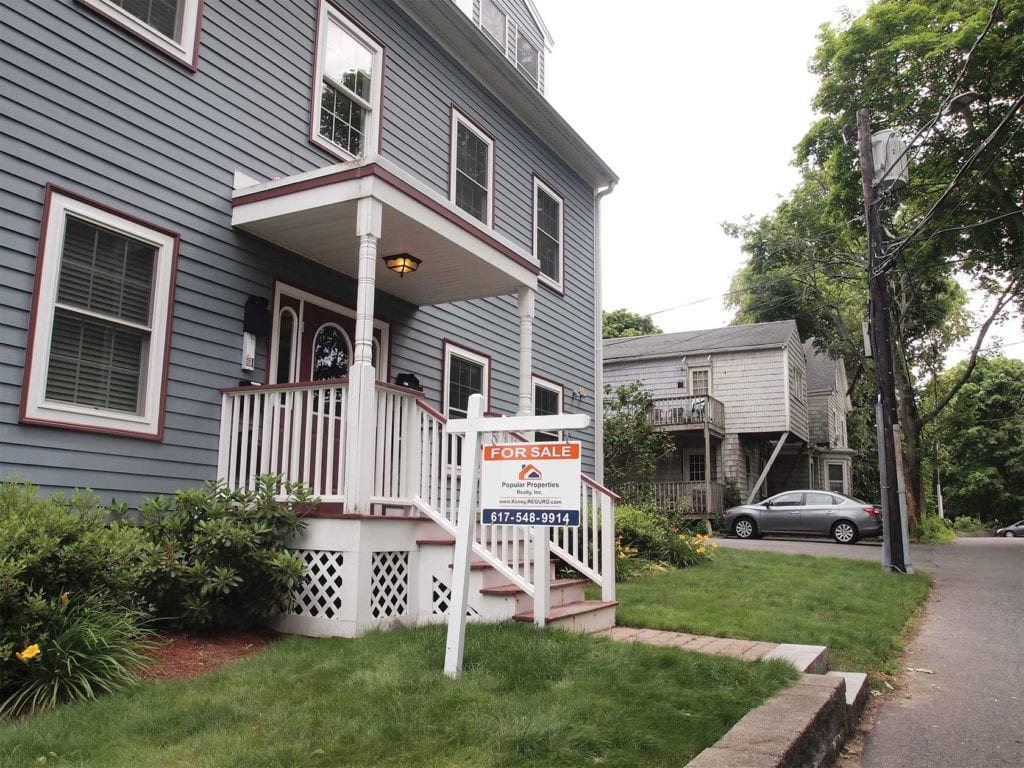Study: Mass rents 3rd most expensive in U.S.
Workers need to earn three times the minimum wage for local rents

A full-time worker needs to earn nearly three times the state minimum wage to afford a modest, two-bedroom apartment at fair market rate in Massachusetts, according to a report released recently by the National Low Income Housing Coalition.
In order to put no more than the recommended 30 percent of their income toward rent, a worker would need to earn $33.81 per hour, the third-highest of any state. In the Boston metropolitan area, including Cambridge and Quincy, that goes up to $42.19. The Massachusetts minimum wage is currently $12.00 per hour, while the national minimum is just $7.25.
“Unfortunately, in the last year, finding an affordable home in Massachusetts has become even more out of reach for people with low incomes,” said Rachel Heller, CEO of Citizens’ Housing and Planning Association (CHAPA), which released the report with NLIHC. “Despite recently raising our state minimum wage, it is less than half of what is needed to afford a modest apartment in Massachusetts. Compared with the rest of the United States, we are the third-least affordable state for renters.”
Working at the state minimum wage, a worker would have to work 91 hours a week, or 2.3 full-time jobs, in order to afford a one-bedroom apartment at fair market rate, and 113 hours or 2.8 full-time jobs for a two-bedroom apartment.
“The math doesn’t add up,” Heller said.
The report positions Massachusetts as having the second-highest disparity, behind only Hawaii, between the average renter wage, which is $20.72 per hour, and the two-bedroom housing wage, or how much a worker must make to afford an apartment. It also states that nowhere in the U.S. can a worker making the federal minimum wage and working a 40-hour work week afford a two-bedroom apartment at fair market rate.
“In my district, the Massachusetts 7th, one of the most diverse and unequal districts in our nation, we are distinctly aware of the interconnectedness between housing and economic opportunity,” wrote Congresswoman Ayanna Pressley in the preface to the NLIHC report. “Children learn better and are more likely to graduate when they live in safe and stable homes. Affordable housing promotes healthy living and provides low-income people a chance at upward mobility. Without it, families are destabilized, productivity suffers, and entire communities crumble.”
Boston’s shrinking middle class
Another report released in October by the Boston Foundation’s research center, Boston Indicators, revealed that the middle class in Boston is shrinking, as rents go up and wages don’t. While the city grew by a total of 88,000 households from 1990 to 2014, it lost more than 15,000 middle-income households.
In 2018, median household income was $61,267, while the median annual rent was $31,356, more than half of that, the report explains. Households paying more than 50 percent of their income in rent are regarded as “extremely housing cost burdened.”
“Wide swaths of several neighborhoods that were once thought of as affordable actually are not,” the Boston Indicators report says. “In 2018, every single census tract in Dorchester, Roxbury and Mattapan is unaffordable to households earning median incomes.”
Diane Yentel, president and CEO of NLIHC, said that while the numbers are disheartening, policymakers are starting to take notice and speak out about evening the playing field for low-income workers.
“Our rental housing needs have worsened considerably over the past 30 years. Housing is out of reach for millions of low-wage workers,” Yentel said. “We now have a tremendous opportunity to implement bold federal housing policy solutions that will fund affordable housing programs at the scale necessary.”






